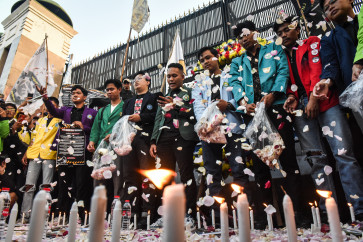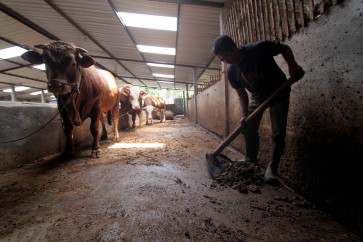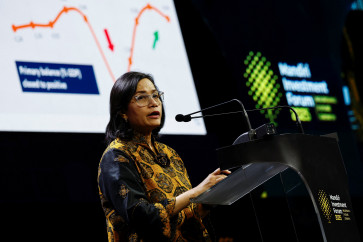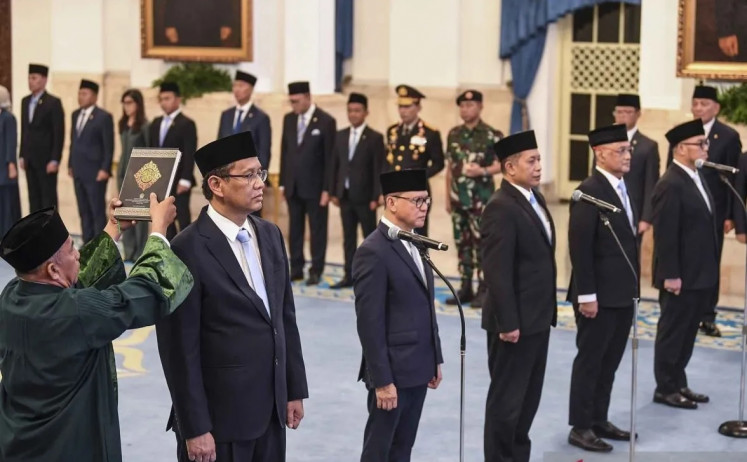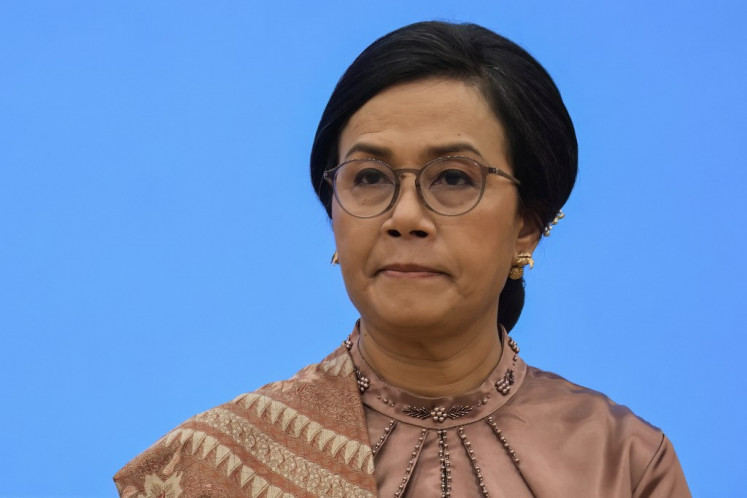Popular Reads
Top Results
Can't find what you're looking for?
View all search resultsPopular Reads
Top Results
Can't find what you're looking for?
View all search resultsLinkAja launches Indonesia’s first sharia e-wallet
Electronic payment platform LinkAja has officially launched Indonesia’s first sharia-compliant e-wallet payment app, which provides Islamic financial services and manages customers’ balances in accordance with Islamic law
Change text size
Gift Premium Articles
to Anyone
E
lectronic payment platform LinkAja has officially launched Indonesia’s first sharia-compliant e-wallet payment app, which provides Islamic financial services and manages customers’ balances in accordance with Islamic law.
LinkAja has forged cooperation with around 1,000 mosques and 242 zakat and waqf agencies to expand the use of the cashless app to a wide customer base, the platform’s sharia service division head Widjajanto Djaenudin said.
“Customers can use the sharia feature to pay for qurban [animal sacrifices], infaq [donations], Islamic boarding school tuition fees, waqf and to top up their balance through sharia banks,” he said in a teleconferenced press briefing following the official launch of the new e-wallet payment feature.
Through the sharia feature, customers’ funds are deposited at state-owned sharia banks, which include Bank Negara Indonesia Syariah, Bank Syariah Mandiri and Bank Rakyat Indonesia Syariah, to avoid interest charges, regarded as usury in Islamic law.
LinkAja, which has more than 40 million users and 500,000 merchants nationwide as of Tuesday, is aiming to attract 1 million users to its sharia feature in 2020 and to help develop Indonesia’s sharia digital economy ecosystem, LinkAja’s chief operating officer Haryati Lawidjaja said.
“Through our sharia service products, we are focusing on developing Indonesia’s sharia economic ecosystem. We hope to empower mosque-centered economic activities, digitalization at Islamic boarding schools and digital payment for zakat, infaq and waqf,” she said.
LinkAja also aims to expand its sharia feature to other Muslim majority countries once it has dominated the local market, Finarya’s president commissioner Heri Supriadi said.
“I think there is huge potential for our products in Muslim majority countries such as Pakistan and Bangladesh. However, we have to fully tap into our own market before we get there,” he said.
Heri added that the company was also currently in discussions with the Religious Affair Ministry’s Haj and Umroh Directorate General over the possibility of encouraging Indonesian pilgrims to use the LinkAja app for payments in Saudi Arabia.
While the feature was officially launched on Tuesday, Widjajanto said it was not yet available for public use due to policy changes on the Google Play Store.
“There’s some technical difficulty from the Google Store services. We need a little more time for Google’s approval, but we’re closely monitoring the situation,” he said.
National Committee for Sharia Finance (KNKS) executive director Ventje Rahardjo, who also attended the conference, said the committee highly appreciated LinkAja’s initiative in developing the sharia service products, which he said would help achieve the committee’s goal to increase Indonesia’s sharia bank assets to Rp 2 quadrillion (US$126.8 billion) by 2024.
“With the presence of a sharia digital payment system, insya Allah [God willing] Indonesia’s sharia financial system will grow exponentially,” he said.
According to Financial Services Authority (OJK) data, sharia banks controlled 491 trillion ($31.1 billion) in total assets as of the end of 2019. The number is significantly lower than the Rp 8.2 quadrillion ($520.1 billion) in assets controlled by conventional banks.
In the 2019 Global Islamic Finance Report (GIFR), Indonesia received a score 81.93 on the Islamic Finance Country Index (IFCI). Indonesia ranked first, up from sixth in 2018, overtaking Malaysia, which had dominated the index since 2011.
The results of the 2019 GIFR demonstrate the important role Indonesia plays in developing the global Islamic banking and finance industry.
Several factors pushed Indonesia to the top of the list, including its development of regulations, improvements to the Islamic banking and financial industry ecosystem, strong political support from the government and also the great potential offered by the sharia economy, the report stated.


